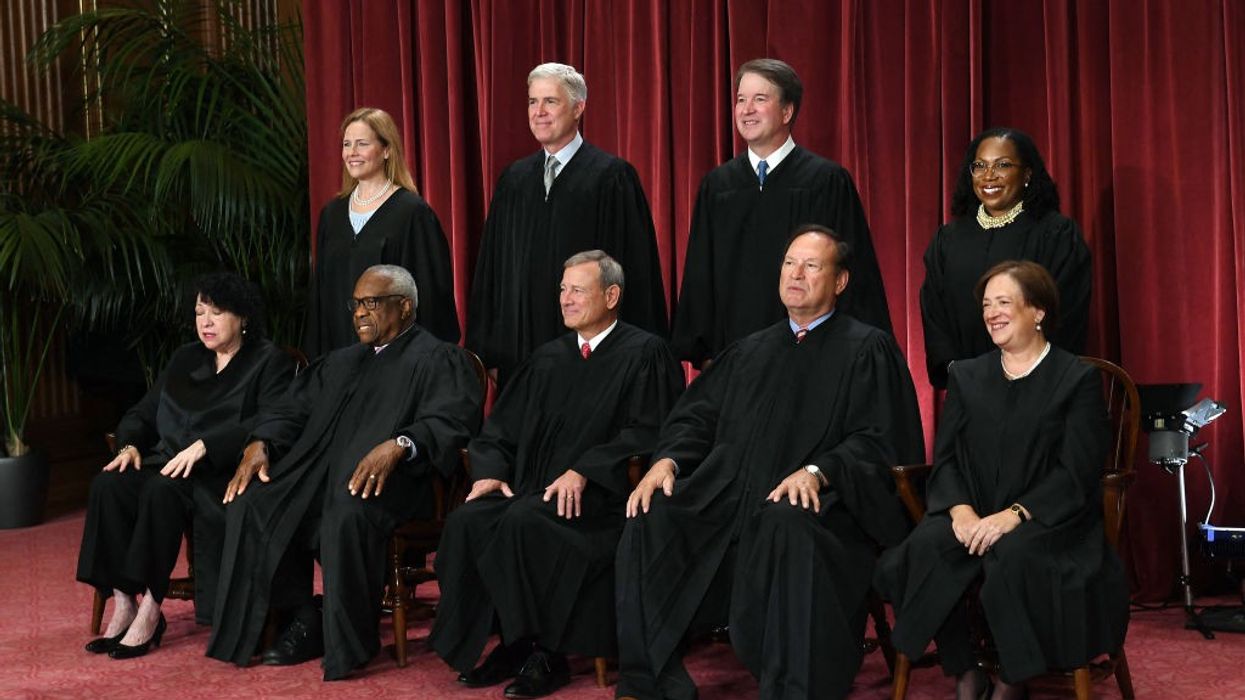Raskin Says Alito Must Recuse After Private Call With Trump
"Alito claims it was to help a former clerk get a job," wrote one legal commentator. "Doesn't matter. Federal law requires Alito now be DISQUALIFIED from the Trump stay petition."
Following the revelation that Supreme Court Justice Samuel Alito had a private phone call with Trump the day before Trump's legal team petitioned the Supreme Court to halt his sentencing in his New York "hush money" case, Congressman Jamie Raskin was among those Thursday who called for Alito's recusal from the high profile case.
ABC News first reported the call between Trump and Alito, which took place Tuesday, and that Alito subsequently claimed concerned one of Alito's former law clerks, who is seeking a job in the new administration. "William Levi, one of my former law clerks, asked me to take a call from President-elect Trump regarding his qualifications to serve in a government position," Alito explained to ABC News in a statement.
On Wednesday morning, Trump's legal team filed an emergency request with the Supreme Court to pause his sentencing in New York court on on 34 felony counts of falsifying business records in connection to hush-money payment to porn actress Stormy Daniels.
Alito said that he and Trump did not discuss Trump's emergency request.
Raskin, ranking member of the House Judiciary Committee, denounced the call as a "breach of judicial ethics" in a statement Thursday, adding "especially when paired with his troubling past partisan ideological activity in favor of Trump, Justice Alito's decision to have a personal phone call with President Trump—who obviously has an active and deeply personal matter before the court—makes clear that he fundamentally misunderstands the basic requirements of judicial ethics or, more likely, believes himself to be above judicial ethics altogether."
Trump's legal team also appealed to the New York Court of Appeals to postpone the sentencing, which was rejected Thursday, a day after a state appeals court in New York also rejected the request. The sentencing is slated to take place on Friday.
Other court watchers also blasted Alito for the phone call.
President of the watchdog Accountable.US Caroline Ciccone urged Alito to recuse himself from all upcoming cases in which Trump is a named party. "In addition, Congress should investigate Alito's—and other justices'—lapses in judicial ethics in order to strengthen the Court's lax code of conduct. Anything less would confirm what so many already fear: that the Court has become overtly political and a playground for the powerful," she wrote.
"Alito claims it was to help a former clerk get a job. Doesn't matter. Federal law requires Alito now be DISQUALIFIED from the Trump stay petition," wrote Tristan Snell, a lawyer and legal commentator, on Wednesday.
This is not the first time that Alito has engendered this type of scrutiny. Last year, following revelations that flags carried by Trump supporters who took part in the January 6 insurrection at the Capitol were seen flying outside Alito's homes, Alito faced calls to recuse himself from a case two cases: one dealing with Trump's claims of presidential immunity and another on the question of whether defendants who participated in the January 6, 2021 attempted insurrection should be charged with obstructing an official proceeding. Alito rejected the calls to step aside.
"Every federal judge and justice knows he or she must avoid situations such as this. Yet Justice Alito did not," said Raskin.


